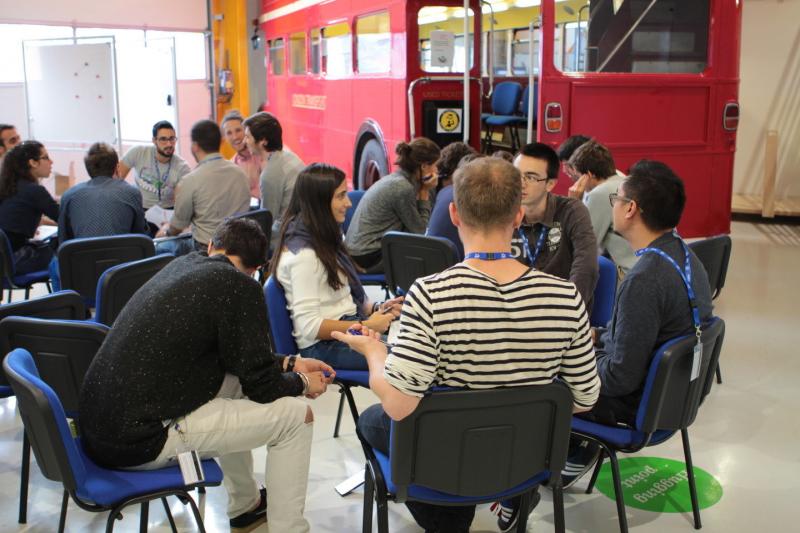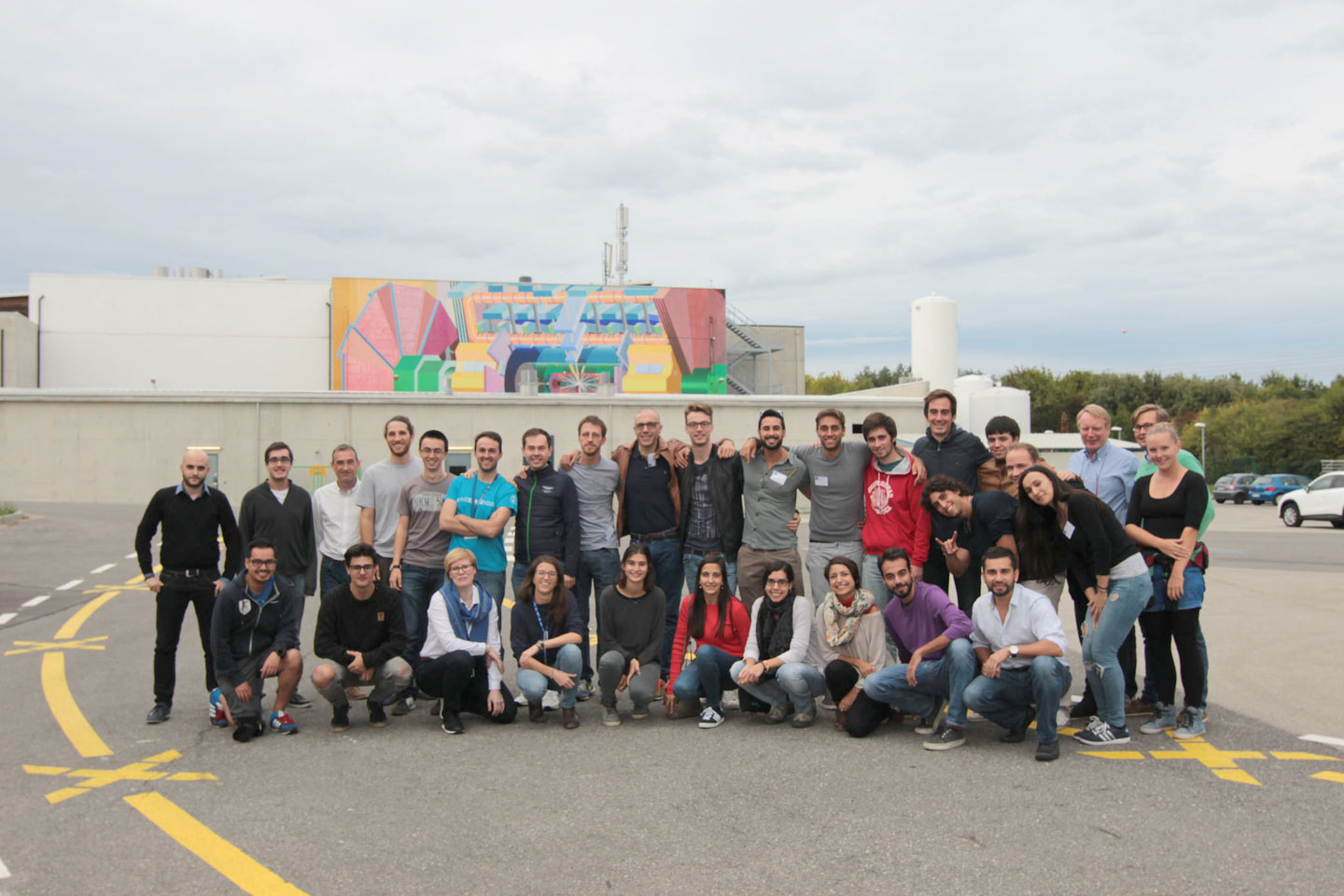Twenty-seven students from four universities and over ten countries gathered at IdeaSquare to start their Challenge-Based Innovation (CBI) course.
The intensive first week of the four-month CBI Mediterranean course took place from 14 to 18 September.
The students, from four universities – ESADE, IED and UPC in Barcelona and UNIMORE in Italy – gathered at CERN to meet researchers and carry out need-finding and benchmarking studies, and presented their work so far.
“The idea of CBI courses is to get multidisciplinary student teams and their instructors to collaborate with researchers at CERN to develop novel solutions that meet societal needs,” explains Joona Kurikka who, together with Tuuli Utriainen, coordinates the CBI courses at CERN. “The four projects we have in this first ‘Mediterranean’ edition of the CBI courses are at the crossroads of several disciplines, and we hope they benefit a lot from all the inspiration, ideas and technologies to which they are exposed at CERN.”

The challenges that will be addressed by the CBI Mediterranean students are improving labour mobility, food safety, literacy in the developing world and water safety.
“Students started to work on the projects a week before coming to CERN,” explains Kurikka. “At CERN, they met researchers working in fields relevant to the specific technology. For example, the team working on food safety had the chance to meet experts in cryogenics, as an important aspect of food safety is the efficient preservation of food quality during the transport and delivery phases.”
The basic requirement of CBI courses is that participating teams must include students from different fields of engineering and IT, as well as students from design faculties and business students. “We believe that developing novel solutions for the future of mankind is a challenge that can be tackled only by experts coming from different fields and who are willing to share their expertise,” says Utriainen.
Three of the four projects are currently sponsored by private companies and NGOs interested in developing new solutions for these challenges. However, all the results of the students’ work will be in the public domain.
The students will visit CERN again at the end of October to begin their second sessions with the CERN experts. The final phase of their project, when they will present their ideas and proof-of-concept prototypes at the final CBI event, will be on 10 December.

